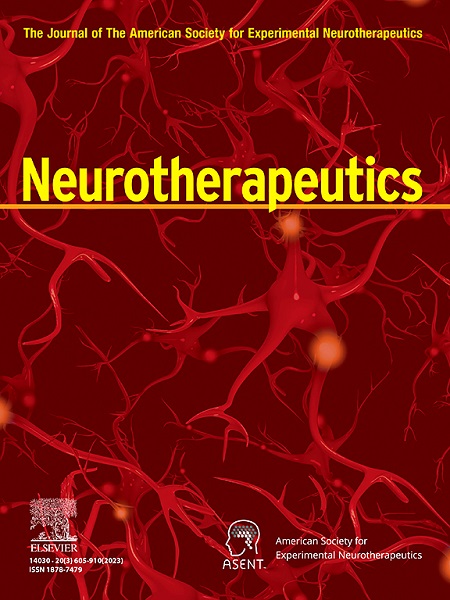特立氟胺疗法对多发性硬化症患者微生物群的调节作用:一项观察性病例对照研究。
IF 5.6
2区 医学
Q1 CLINICAL NEUROLOGY
引用次数: 0
摘要
多发性硬化症(MS)是一种由免疫介导的慢性异质性疾病,其特点是脱髓鞘、轴索损伤以及身体和认知功能障碍。最近的研究强调了多发性硬化症患者(pwMS)微生物群的改变。然而,由于该疾病的复杂性和治疗方法的多样性,确定与多发性硬化症症状和疾病进展相关的特定微生物种群或功能具有挑战性。本研究旨在描述接受口服药物特立氟胺(TF)治疗的多发性硬化症患者微生物群的特征,并将其与接受β干扰素(IFNβ)治疗的多发性硬化症患者、未接受过疾病调整疗法治疗的多发性硬化症患者(天真者)和健康对照组的微生物群进行比较。我们的研究结果表明,pwMS 患者肠道微生物群的组成和功能都发生了重大变化,而这些变化又受到疾病调节疗法的进一步影响。特别是,口服 TF 治疗对 pwMS 的肠道微生物群有显著影响。重要的是,肠道内失调的微生物环境与 pwMS 常见的症状有关,包括疲劳、焦虑和抑郁。本文章由计算机程序翻译,如有差异,请以英文原文为准。
Microbiota modulation by teriflunomide therapy in people with multiple sclerosis: An observational case-control study
Multiple sclerosis (MS) is a chronic immune-mediated and heterogeneous disease characterized by demyelination, axonal damage, and physical and cognitive impairment. Recent studies have highlighted alterations in the microbiota of people with MS (pwMS). However, the intricate nature of the disease and the wide range of treatments available make it challenging to identify specific microbial populations or functions associated with MS symptoms and disease progression. This study aimed to characterize the microbiota of pwMS treated with the oral drug teriflunomide (TF) and compare it with that of pwMS treated with beta interferons (IFNβ), pwMS treated with no previous disease modifying therapies (naïve), and healthy controls. Our findings demonstrate significant alterations in both the composition and function of the gut microbiota in pwMS that are further influenced by disease-modifying therapies. Specifically, oral treatment with TF had a notable impact on the gut microbiota of pwMS. Importantly, the dysregulated microbial environment within the gut was associated with symptoms commonly experienced by pwMS, including fatigue, anxiety, and depression.
求助全文
通过发布文献求助,成功后即可免费获取论文全文。
去求助
来源期刊

Neurotherapeutics
医学-神经科学
CiteScore
11.00
自引率
3.50%
发文量
154
审稿时长
6-12 weeks
期刊介绍:
Neurotherapeutics® is the journal of the American Society for Experimental Neurotherapeutics (ASENT). Each issue provides critical reviews of an important topic relating to the treatment of neurological disorders written by international authorities.
The Journal also publishes original research articles in translational neuroscience including descriptions of cutting edge therapies that cross disciplinary lines and represent important contributions to neurotherapeutics for medical practitioners and other researchers in the field.
Neurotherapeutics ® delivers a multidisciplinary perspective on the frontiers of translational neuroscience, provides perspectives on current research and practice, and covers social and ethical as well as scientific issues.
 求助内容:
求助内容: 应助结果提醒方式:
应助结果提醒方式:


